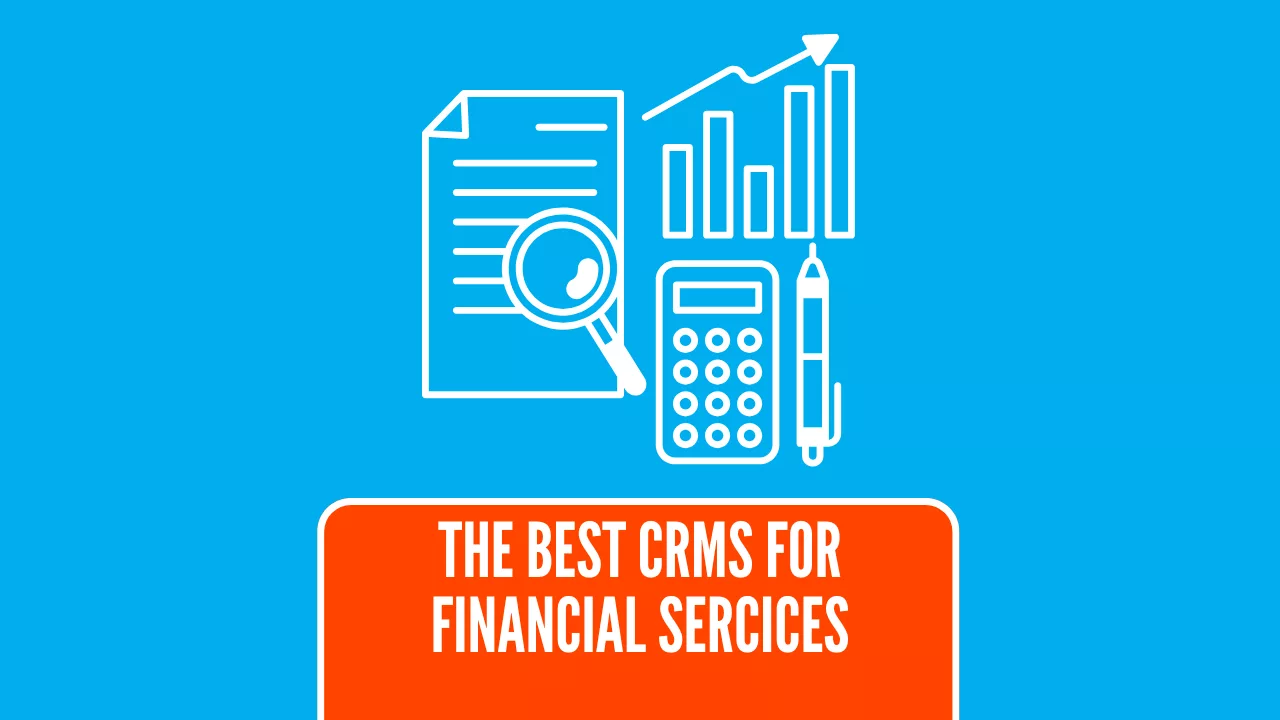Are you searching for the best CRM for financial services to streamline client relationships, boost productivity, and stay compliant with regulations? In this article, we review the top CRM solutions for 2025 that can help your financial services firm achieve these goals effectively.
Key Takeaways
The article outlines six top CRM solutions for financial services in 2025, highlighting unique features that enhance client relationship management and operational efficiency.
Key features to consider when selecting a financial services CRM include centralized client data management, workflow automation, and compliance management to improve productivity and adherence to regulations.
Successful CRM implementation relies on understanding business needs, comparing features for usability, and evaluating costs and ROI to ensure the right fit for financial firms.
Top 6 CRM Software for Financial Services in 2025
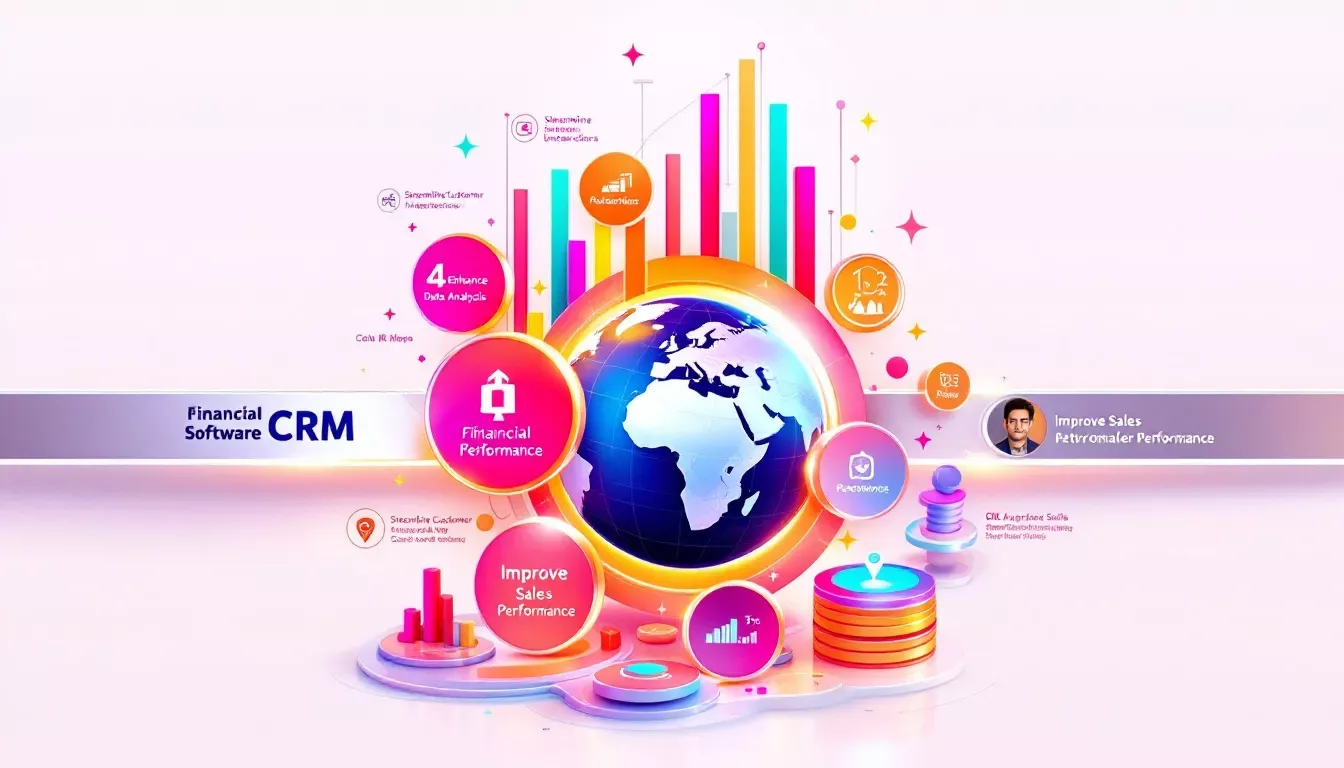
Choosing the right CRM for your financial services business can be challenging due to numerous options. To assist you, we’ve highlighted six standout CRM solutions for 2025.
Included are Salesforce Financial Services Cloud, Zoho CRM for Finance, and Microsoft Dynamics 365 Finance and Operations. The list also features HubSpot CRM for Financial Services, Wealthbox CRM, and Pega CRM for Financial Services. Each platform provides unique features tailored to financial services firms, helping manage client relationships, streamline operations, and comply with industry regulations.
Salesforce Financial Services Cloud
Salesforce Financial Services Cloud is a powerhouse designed specifically for the financial services industry. This robust platform offers a suite of tools for managing client relationships, compliance, and financial planning. One of the standout features of Salesforce CRM is its ability to manage client relationships at scale, offering personalized and integrated services that drive growth and ensure compliance. With specialized tools like custom banking CRM software, Salesforce Financial Services Cloud provides financial advisors with a unified interface for managing client goals and tasks.
Adopting Salesforce Financial Services Cloud enhances customer relationships, improves compliance management, and significantly boosts operational efficiency. The platform integrates various financial tools and data sources, giving financial advisors the insights needed to offer exceptional client services.
Zoho CRM for Finance
Zoho CRM is a versatile, cost-effective solution, ideal for small and medium-sized financial firms. Its flexibility and affordability allow firms to customize features to meet specific needs without breaking the bank. The CRM integrates seamlessly with other financial tools, such as LeadSync, enhancing its functionality and making it a comprehensive solution for client management and financial planning.
One of Zoho CRM’s key strengths is its ability to track annual revenue, stock purchases, and investment analysis, providing financial advisors with detailed insights into client financial histories. This data-driven approach enables financial advisors to offer personalized financial advice and maintain strong client relationships, ultimately driving business growth and client satisfaction.
Microsoft Dynamics 365 Finance and Operations
Microsoft Dynamics 365 Finance and Operations stands out by integrating both CRM and ERP functionalities, providing a comprehensive solution for financial services firms. This integration streamlines operations, allowing financial institutions to manage resources more effectively and enhance operational efficiency.
The consolidation of CRM and ERP in Microsoft Dynamics 365 enhances customer data management, providing a holistic view of client interactions and financial histories.
HubSpot CRM for Financial Services
HubSpot CRM is renowned for its user-friendly design and powerful marketing automation capabilities, making it an excellent choice for financial services firms looking to enhance client engagement. Although not exclusively designed for the financial sector, HubSpot CRM’s adaptability makes it valuable for financial advisors. The free version, coupled with features like automatic tracking of customer interactions, provides a cost-effective solution for small financial services businesses.
HubSpot CRM integrates seamlessly with tools like Microsoft Outlook and Gmail. With LeadsBridge, it ensures streamlined data sharing and operational efficiency. Financial services firms can leverage HubSpot CRM to maintain consistent communication, enhance client engagement, and ultimately improve client relationships.
Wealthbox CRM
Wealthbox CRM is designed specifically for financial advisors. This makes it an ideal option for wealth management firms. This platform features a user-friendly interface that simplifies managing client interactions and provides real-time updates to help financial advisors stay on top of client activity. Wealthbox CRM’s intuitive design and powerful features make it easy for financial planners to deliver personalized financial advice and maintain strong client relationships.
Financial service providers, particularly those in wealth management, will find Wealthbox CRM a valuable tool for streamlining client relationship management and enhancing operational efficiency. The platform’s focus on simplicity and effectiveness ensures that financial advisors can provide exceptional client services without getting bogged down by complex software.
Pega CRM for Financial Services
Pega CRM leverages AI and automation to enhance customer service capabilities for larger financial institutions. This platform is tailored to manage complex client interactions, significantly improving operational efficiency within the financial services industry. By utilizing advanced technologies, Pega CRM ensures that financial service providers can deliver personalized financial advice and maintain high levels of client engagement.
Key Features to Look for in Financial Services CRM Software
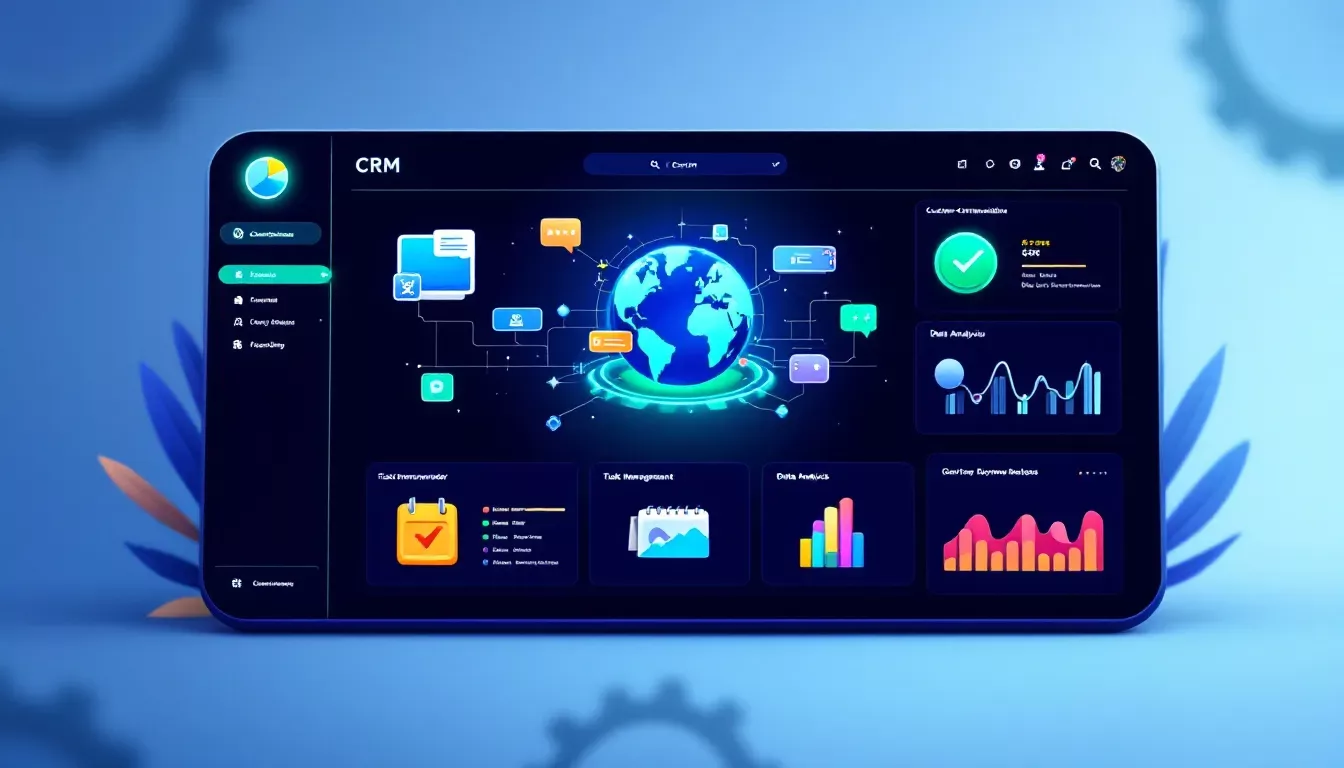
Choosing the right CRM for your financial services business involves understanding the key features that can drive operational efficiency and enhance client relationships. Centralized client data management, workflow automation, and compliance management are essential elements to consider.
These features ensure that financial advisors can manage client interactions effectively, automate routine tasks, and adhere to regulatory requirements.
Client Data Management
Centralized client data management is a cornerstone of effective customer relationship management in the financial services industry. CRM systems enable financial advisors to maintain detailed records of client interactions and financial histories, providing a comprehensive view of client preferences and goals. This centralized approach saves time and enhances organizational efficiency, allowing advisors to tailor their services to meet individual client needs.
Moreover, having a complete view of client interactions helps financial advisors deliver personalized financial advice and maintain strong client relationships. This holistic understanding of client data fosters deeper engagement and ensures that advisors can proactively address client concerns and opportunities.
Workflow Automation
Workflow automation within CRM systems is a game-changer for financial advisors. By automating routine tasks, financial advisors can focus more on building and maintaining client relationships rather than getting bogged down by administrative duties.
Small advisory firms, in particular, can benefit from CRM solutions like Zoho CRM, which offer automation capabilities that streamline tasks such as lead management and follow-up communications. By reducing manual tasks, advisors can dedicate more time to providing personalized financial advice and enhancing client relationships.
Compliance Management
Compliance management is critical for financial services firms to avoid legal issues and ensure regulatory adherence. CRM systems help financial advisors securely store and organize sensitive client information, meeting regulatory standards and safeguarding data. Features that facilitate data governance and ensure adherence to data privacy regulations are essential when selecting a CRM for financial services.
Choosing a CRM with robust compliance management capabilities ensures that financial services providers can focus on delivering exceptional client services without worrying about regulatory pitfalls. This focus on compliance not only protects the firm but also builds trust with clients, knowing their data is handled securely and responsibly.
How Financial CRMs Enhance Client Relationships
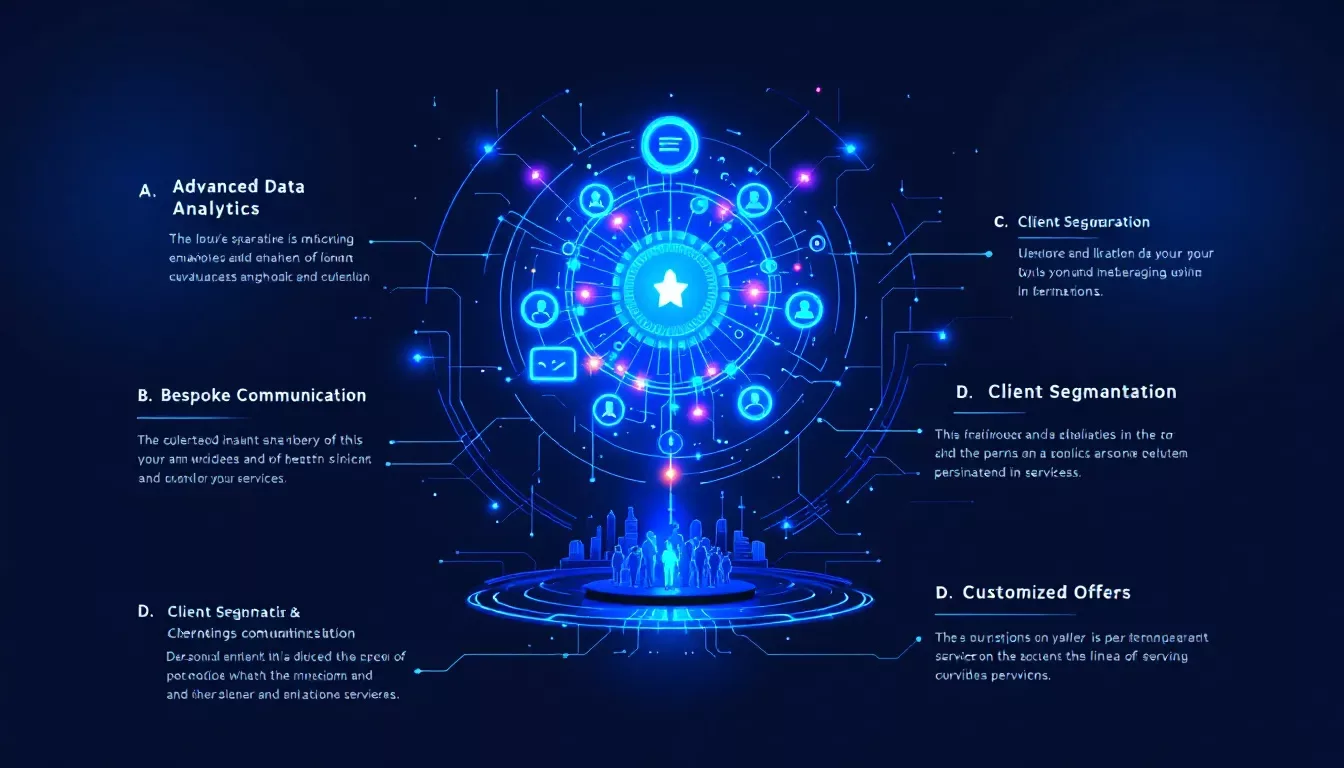
Financial CRMs play a pivotal role in enhancing client relationships by providing tools that enable personalized financial advice, consistent client engagement, and comprehensive tracking of client interactions. These systems allow financial advisors to manage client relationships more effectively, ensuring that clients receive tailored services based on their unique needs and preferences. Additionally, financial services crm systems help streamline processes and improve overall efficiency.
Personalized Financial Advice
Financial CRMs empower advisors to deliver personalized financial advice by leveraging comprehensive client data and financial data. These systems facilitate the creation of customized financial planning tools, enabling advisors to conduct thorough financial analyses and recommend suitable investment strategies based on individual client needs.
This personalized approach enhances client satisfaction and strengthens the advisor-client relationship, driving business growth and client loyalty.
Enhanced Client Engagement
Using CRM tools, financial advisors can maintain consistent communication and provide clients with instant access to their financial information. Regular, meaningful communication helps clients feel supported and valued, fostering strong relationships and satisfaction.
Enhanced client engagement through CRM systems leads to better client retention and overall business success.
Tracking Client Interactions
Tracking client interactions is essential for personalized service and strong client relationships. CRM systems allow financial services firms to systematically capture all forms of client interactions, including meetings, calls, and emails, ensuring a comprehensive communication history.
This robust tracking capability enhances client satisfaction by ensuring informed and personalized communication, ultimately improving client relationships.
Evaluating CRM Solutions for Financial Services Firms
Evaluating CRM solutions for financial services firms involves considering several critical factors, including security, scalability, customization, and user adoption. Choosing the right CRM system is crucial for improving operational efficiency and managing customer data effectively.
Financial services firms should evaluate the pricing structure of potential CRM solutions in the financial industry to ensure they fit the firm’s financial strategy and provide a good return on investment (ROI).
Scalability and Flexibility
Scalability and flexibility are crucial considerations for financial services firms when selecting a CRM system. A scalable CRM can support both vertical and horizontal growth, accommodating business expansion and market changes effectively.
CRMs that adapt to changing needs help financial services firms maintain operational efficiency during growth or strategic shifts.
Integration Capabilities
Integration capabilities are vital for ensuring seamless operations within financial services firms. A CRM that integrates well with existing tools and platforms minimizes data entry errors and enhances operational efficiency.
Integrating effectively with other financial software and accounting tools ensures smooth management of client interactions and data, driving better relationships and overall business success.
User Adoption and Training
User adoption and training are key factors in the successful implementation of a CRM system. Evaluating the user-friendliness of a CRM and its ability to customize features can significantly influence the selection process. Ongoing training sessions enhance user confidence and ensure full utilization of CRM features, leading to better client relationships and operational efficiency.
Real-World Examples: Success Stories with Financial CRMs

Real-world examples of financial services firms successfully implementing CRMs can provide valuable insights and inspiration. These success stories show how CRM solutions have driven business growth, improved operational efficiency, and enhanced client relationships for various financial institutions.
Wealth Management Firm Case Study
A wealth management firm reported significant improvements in compliance and client relationship management after adopting Salesforce Financial Services Cloud. The firm leveraged the specialized tools available in Salesforce CRM to enhance client relationships and ensure regulatory compliance.
This adoption resulted in more effective client services and overall business growth for the firm.
Small Financial Advisor Firm Case Study
A small advisory firm experienced increased operational efficiency and improved client satisfaction by implementing Zoho CRM. The automation of communication and task management through Zoho CRM allowed the firm to streamline its operations significantly.
This led to better client relationships and higher client retention, demonstrating the powerful impact of choosing the right financial services CRM system.
Choosing the Right CRM for Your Financial Services Business
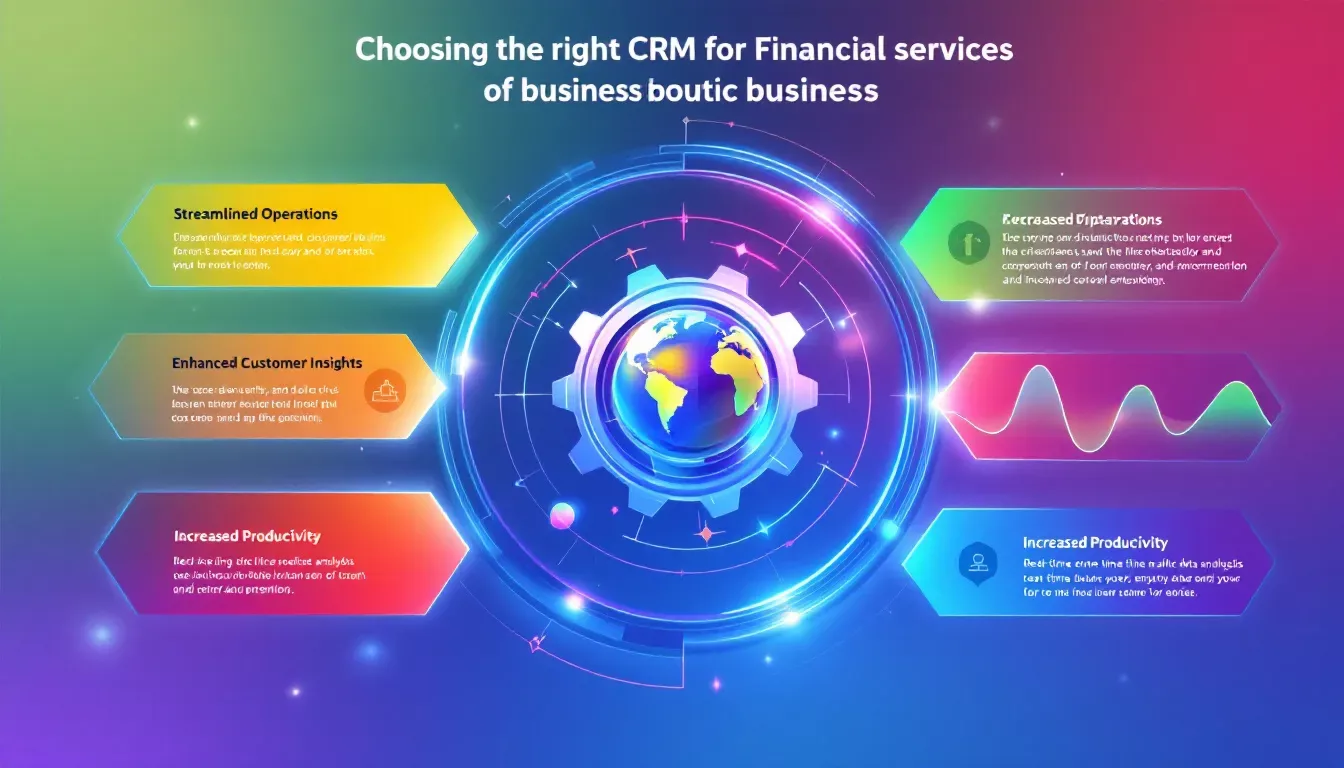
Choosing the right CRM for your financial services business involves understanding your unique needs and evaluating different CRM systems accordingly. Financial advisors must consider factors such as flexibility, adaptability, cost, and return on investment (ROI) when making their decision.
Follow these steps to identify your requirements, compare CRM features, and evaluate costs and ROI to choose the best CRM for your business.
Identify Your Requirements
Begin by identifying the specific requirements of your business. Engage key stakeholders across departments to gather comprehensive information about what you need from a CRM system.
Consider internal control, client data management, workflow automation, and compliance management to ensure the CRM meets all your business needs and drives client satisfaction.
Compare CRM Features
When comparing CRM features, prioritize user-friendly interfaces and efficient client data management. Look for centralized data management, workflow automation, and robust compliance management to enhance productivity and ensure regulatory adherence.
Also, consider scalability, flexibility, and integration capabilities with existing financial software and accounting tools to meet expanding business needs. Strong user adoption through a user-friendly design and adequate training resources is also critical for successful CRM implementation.
Evaluate Costs and ROI
Evaluating the costs and ROI of CRM systems is essential for making an informed investment decision. CRM pricing varies widely, with premium packages typically ranging from $50 to $100 per user per month, while basic subscriptions may cost $10 to $40 per user per month. Some systems offer free versions with limited features, making them accessible for smaller firms.
Look for flexible pricing options and ensure transparency with no hidden fees. Accurate cost prediction aids in budgeting and achieving a good return on investment, ensuring the chosen CRM system provides value for money.
Wrapping Uo
Choosing the best CRM for your financial services business in 2025 is essential for enhancing client relationships, streamlining operations, and ensuring compliance. By understanding the top CRM solutions available, the key features to look for, and how to evaluate these systems, financial advisors can make informed decisions that drive business growth and client satisfaction. The right CRM system will not only improve operational efficiency but also empower advisors to deliver personalized financial advice and foster strong client relationships. As you navigate the selection process, remember to align your choice with your specific business needs and goals.
Frequently Asked Questions
What is crm in finance?
CRM in finance is all about managing relationships with clients to boost profitability. It helps companies streamline interactions with current and potential clients effectively.
What are the top CRM systems for financial services in 2024?
In 2024, some of the best CRM systems for financial services are Salesforce Financial Services Cloud, Zoho CRM for Finance, and Microsoft Dynamics 365 Finance and Operations. These options will help you effectively manage client relationships and streamline your operations.
Why is Salesforce Financial Services Cloud a good choice for financial advisors?
Salesforce Financial Services Cloud is a great choice for financial advisors because it provides tailored tools for managing client relationships and compliance. This not only improves client interactions but also supports growth in your practice.
How does Zoho CRM benefit small and medium-sized financial firms?
Zoho CRM is perfect for small and medium-sized financial firms because it’s affordable and customizable, allowing for seamless integration with other tools. It helps you track revenue and investments effectively, enabling you to provide tailored financial advice to your clients.
What key features should I look for in a financial services CRM?
When choosing a financial services CRM, it’s essential to prioritize centralized client data management, workflow automation, and compliance management. These features ensure efficiency, adaptability, and ease of integration with your current systems.

